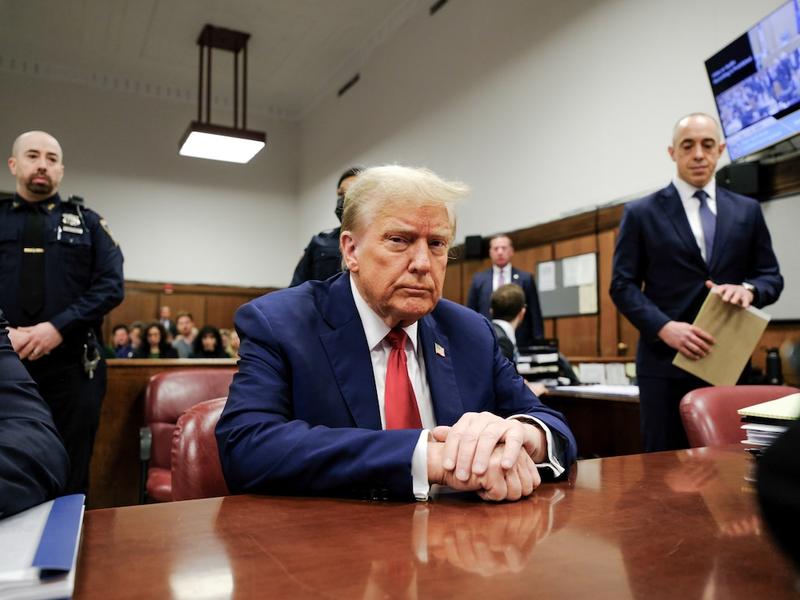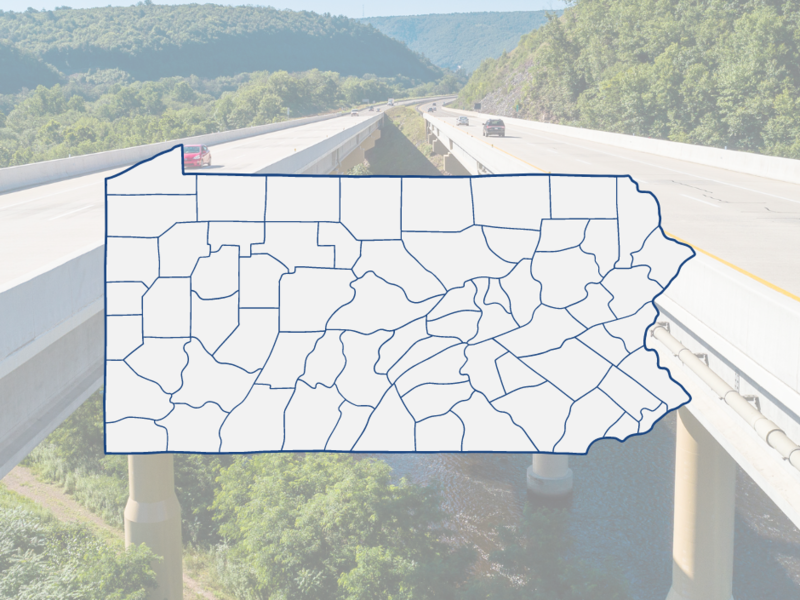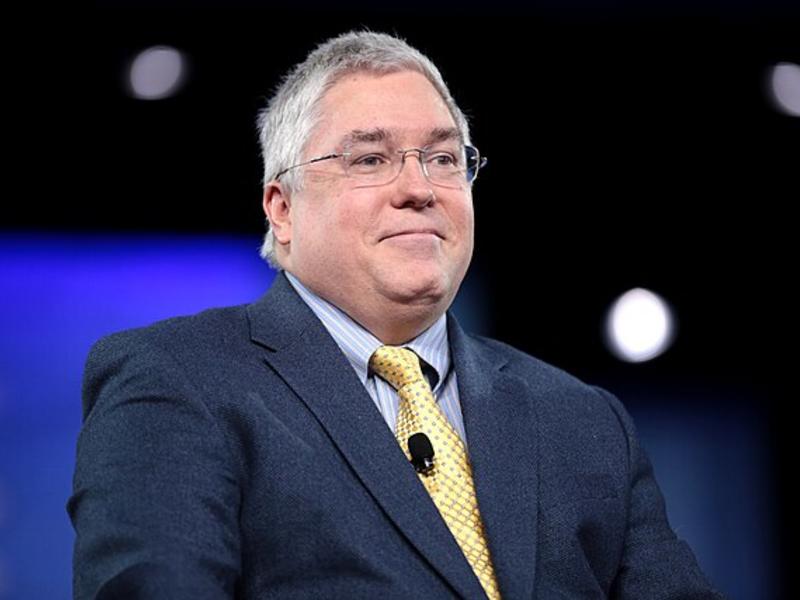
With just under two weeks until Election Day and more than 43 million ballots already cast, time is running out for President Trump to turn around his political fortunes. More daunting for the president is the fact that few events have made a meaningful or long-lasting impact on his standing in this race. At the beginning of 2020, before impeachment, before COVID, before George Floyd or the death of Justice Ruth Bader Ginsburg, Trump's job approval rating — according to the FiveThirtyEight average was 42 percent approve to 53 percent disapprove. Today, his job approval rating is unchanged at 43 percent approve to 54 percent disapprove.
A Supreme Court opening just weeks before Election Day is one of those things that, in normal times, could give a sitting president a boost. The hearings went smoothly. A recent Gallup poll found a slim majority — 51 percent — support a vote to confirm Amy Coney Barrett. Compare that to 2018 when just 41 percent of Americans approved of confirming Brett Kavanaugh. Moreover, despite predictions from the left that the Republican decision to 'force through' a Supreme Court nominee just days before an election would backfire, a recent New York Times/Siena poll found a plurality (47 percent) of voters who think the Senate should vote on her appointment before Election Day. Among independent voters, 49 percent approve of the vote, compared to 40 percent who do not.
Even so, Trump's overall job approval in that New York Times/Siena poll sat at just 43 percent, with 51 percent disapproving. Among independents, Trump garnered only 43 percent approve to 50 percent disapprove.
Another data point that should conceivably give Trump a boost and has led to a lot of head-scratching among the political commentary industry is the significant percentage of Americans who — despite living through a pandemic and an economic crisis — think things are better for them today than four years ago. In a mid-October NBC/Wall Street Journal poll, 50 percent of Americans said that things were going better for themselves and their families compared to four years ago. In a recent Gallup poll, a whopping 61 percent of Americans said that they are better off than they were three years ago.
Even so, just 44 percent of voters in the NBC/Wall Street Journal poll and 43 percent in Gallup polling give Trump positive marks as president.
Why am I focusing so much on Trump's job approval rating? A president's job approval rating is one of the most consistent (and accurate) predictors of electoral performance. Voters who think the president is doing a good job usually vote to re-elect this president. Voters who think that the president is doing a lousy job are almost certain to vote against that person.
In fact, if we look back to 1980, the final Gallup job approval ratings for an incumbent president seeking re-election were within 1-4 points of that president's final vote margin. For example, in 2004, the final Gallup poll showed George W. Bush with a 48 percent job approval rating. Bush won re-election that year with just over 50 percent (50.7 percent). President Obama's final October Gallup poll showed him at 50 percent job approval. He won with 51 percent.
Today, Trump is sitting at a 43 percent approval rating. Even if he picked up 1-3 points on Election Day (as Bush and Obama did), that would get him to just 44-46 percent of the national vote. But, in a race where the third party vote will be half of what it was last time (somewhere between 2-3 points), even if Trump were to hit 46 percent of the national vote as he did in 2016, he would trail Biden by 6 points in the national vote (52-46). He lost the popular vote in 2016 by just two points, 46 to 48 percent.
Gallup Job Approval Rating/ Final Vote Share
Trump's job approval ratings in battleground states look better, but not overwhelmingly so. In North Carolina, recent polls from ABC/Washington Post and New York Times/Siena College peg Trump's job approval rating at 47 percent. In Florida, his job approval rating ranges from 45 to 47 percent. Trump needs to win both of these states to win the Electoral College.
Let's take a look at Pennsylvania, a state where three high-quality polls — Fox News, Quinnipiac and CNN — have been conducted most recently.
All three polls show Biden ahead by anywhere from five points (Fox) to 10 points (CNN) lead. The CNN poll and the Quinnipiac surveys also show Trump's job approval in line with his current share of the vote. For example, Trump's 43 percent of the Quinnipiac survey's vote is pretty much in line with the percentage of voters who approve of the job he's doing as president and who have a favorable opinion of him. The Fox poll finds that Trump's job approval rating (at 48 percent) is three points higher than the 45 percent of the vote he's taking against Biden.
In other words, Trump is winning over all the voters who already like him. He's now got to convince voters who currently say they don't like him — or say they are undecided on him — to come over to his side. That's not easy to do this late in the game. More important, voters like Biden more than they like Trump. In 2016, many voters said they chose Trump as the 'lesser of two evils." In this case, Trump is the more unpopular one.
Pennsylvania Polls
The good news for the president is that his job approval rating in some of these states is three to five points higher than his national average. That means, despite Trump's overall low job approval rating nationally, the key battleground states margins can be much closer.
So, if we know that Trump's challenge in the next couple of weeks is to improve his job approval rating, how does he do that? Of course, the most obvious is the one he's been least interested in doing: effectively tackling the COVID crisis. Sarah Longwell, a GOP strategist and founder of Republican Voters Against Trump, has been conducting focus groups of white, suburban women in swing states who voted for Trump in 2016. In recent focus groups, Longwell told me, "Covid is basically more top of mind for people than it was in late August/early September. And that's bad for Trump, because people are hurting and he's offering no plan. Which is what they want."
Instead, Trump talks about how we have 'turned the corner' on this pandemic, even as cases are spiking across the country.
The president would rather make this election a referendum on grievance — of the biased national media, the 'rigged' election process, the "Chinese" flu, and Hunter Biden's laptop — than on governing.
One GOP strategist who has been doing a lot of work with suburban voters this cycle tells me that Trump could win over many of these voters on his economic record, but he has ultimately lost them with his personality. "They are exhausted by the reality show," the person told me.
However, one question that still haunts many Democrats — and buoys Trump's supporters - is whether traditional polling methods continue to miss Trump-friendly voters. A Democrat involved in the analysis of early vote trends, especially among those who didn't participate in 2016, noted that "when controlling for previous vote method, white non-college voters are more likely to have voted already than either African American or Latinx voters." In other words, even as the conventional wisdom suggests that Democrats are crushing the GOP on early vote, there are signs that the potential Trump vote is more engaged than traditional Democratic voting groups. But, even the most pessimistic Democrats argue that the polling miss would have to be a lot larger than the one in 2016 for Trump to be ahead. The New York Times' Nate Cohn finds that even if the polling miss were as favorable to Trump in 2020 as they were in 2016, Biden would still be ahead in states like Pennsylvania, Arizona, Michigan and Florida.
The best course of action for the president over these last two weeks would be to tone it down rather than ratcheting it up. The rallies and the rage-tweets may satisfy his desire for instant gratification, but it's not helping him win this election. The better voters feel about him, the better they may feel about voting for him. But, I wouldn't hold my breath that that's what we'll see over these next couple of weeks.
Image: AP Photo/Evan Vucci










Subscribe Today
Our subscribers have first access to individual race pages for each House, Senate and Governors race, which will include race ratings (each race is rated on a seven-point scale) and a narrative analysis pertaining to that race.